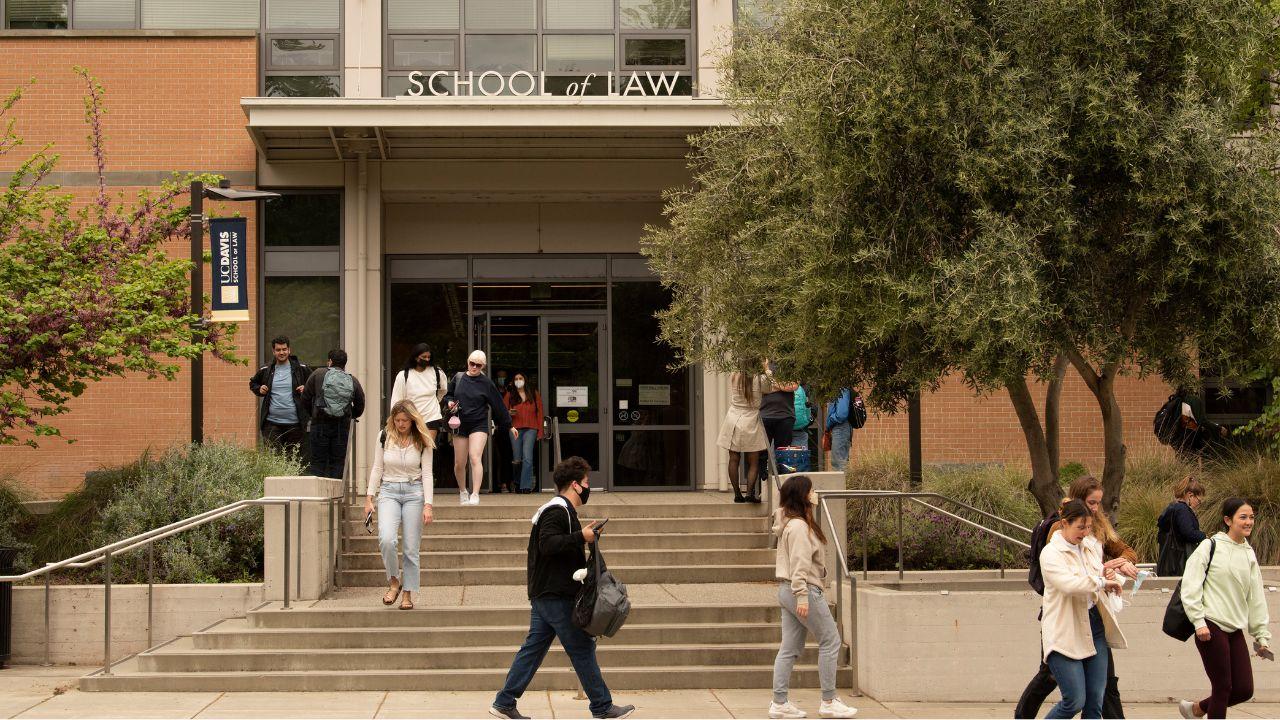Well, here you are. You’ve decided you want to go to law school — but how do you get in? How do you know which schools to apply to? Will you need to take admission tests?
Having all these questions is normal. It’s also normal to feel lost and overwhelmed. But there’s nothing to be afraid of and no need for the process to seem opaque. Read on to learn about the application process, broken down into simple steps.
If you’re not sure about law school or want to learn more about what it’s like and whether you should apply, consider reading our article “What You Need To Know About Law School.” If you don’t know much about law school, that article is a good place to start.
Applying to law school can be a daunting process, but it doesn’t have to be. Here are five steps to follow when setting off on your application journey.
1. Research many law schools

When searching for the right law school, there are a variety of factors you should consider. For example, you’ll want to think about location, cost of attendance and prestige. If you have an interest in a particular area of law, you should look for schools that have a strong program in that concentration.
As you build up your list of schools, you should organize them based on admissions statistics — acceptance rate, average GPA and average LSAT score. These factors will help you determine whether a school is in the safety, target or reach ranges for you.
A good place to start exploring law schools is the Law School Admission Council’s Official Guide. LSAC is an official organization on which law schools rely for admissions information coordination — sort of like the College Board for undergraduate institutions. LSAC administers the LSAT exam and manages the Credential Assembly Service, through which law schools accept applications.
2. Take the LSAT

The Law School Admission Test is a standardized test administered by LSAC. Offered several times throughout the year, the exam is divided into sections on reading comprehension, arguments and logic games. It’s designed to test your aptitude for the kind of reasoning that makes a good lawyer.
Your LSAT score will be a major factor law schools will consider when you apply. It will also offer a metric for you to determine whether a particular school is in your safety, target or reach ranges.
The LSAT is offered several times throughout the year. You should plan on taking it at least a few months before you send out applications, so you’ll have time to improve your score if necessary. Starting to prepare for the test at least two months in advance has been shown to improve outcomes. You’ll want to study the format of the test and, for the best results, take practice exams. You can start exploring official LSAT test preparation resources on the LSAC website.
3. Write a personal statement

In contrast to the LSAT’s quantitative metric of your aptitude, a personal statement offers a qualitative measure for schools. A personal statement is a short essay that you will submit with your application that discusses your personal history, interests, goals and strengths. It’s a chance for you to showcase what makes you unique.
For advice on this step, check out our article “How to Write a Strong Personal Statement for Graduate School.” The UC Davis Office of Educational Opportunity and Enrichment Services also offers personal statement workshops and programs.
4. Request letters of recommendation

Letters of recommendation are another way for schools to qualitatively evaluate your academic success, work ethic and interests. They’re a way for you to stand out beyond the number on your LSAT report. Most schools will ask for two to three letters of recommendation, so start thinking early about who you’ll approach for them.
The key to receiving good letters of recommendation is building personal relationships with your professors and supervisors. Try out these tips:
- Attend office hours.
- Ask questions in class.
- Get involved in research.
- Share your interests.
- Ask for advice.
If you put in the effort to make genuine connections with them, your professors and supervisors will be happy to write passionate, personalized letters on your behalf.
For more advice on securing letters of recommendation, read our article “How to Request Letters of Recommendation for Grad School.”
5. Keep on top of the admissions cycle

Just like applying to undergraduate studies, applying to law school is a lengthy process. You should plan to space out your application journey over at least six months. During this time, you’ll need to study for and take the LSAT, explore schools and prepare your application materials. Spacing the process out will allow you to keep a healthy balance with your studies and personal life.
Most law schools begin accepting applications in the fall of the preceding year and continue to accept them well into the spring. It’s recommended that you apply early in the cycle to have the best chance at securing a spot.
Now go on — you’ve got this
Applying to law school can be draining and nerve-wracking. Just remember that no matter what, you are good enough — it’s just about presenting your unique, talented self in the best way.
For more advice on the law school application process, read our article “6 Things I Wish I Knew When I Applied to Law School.”
How to apply to UC Davis School of Law
What you need to know about law school
R.J. Praker (she/her) is a third year pursuing a bachelor’s degree in political science with minors in professional writing and Russian. She currently works as a writing intern for UC Davis' Office of Strategic Communications and an academic peer advisor for the Department of Political Science. She also serves as chief copy editor at the Davis Political Review. R.J. is from Placerville, California and loves to hike in the Sierra Nevada with her family’s dogs.
